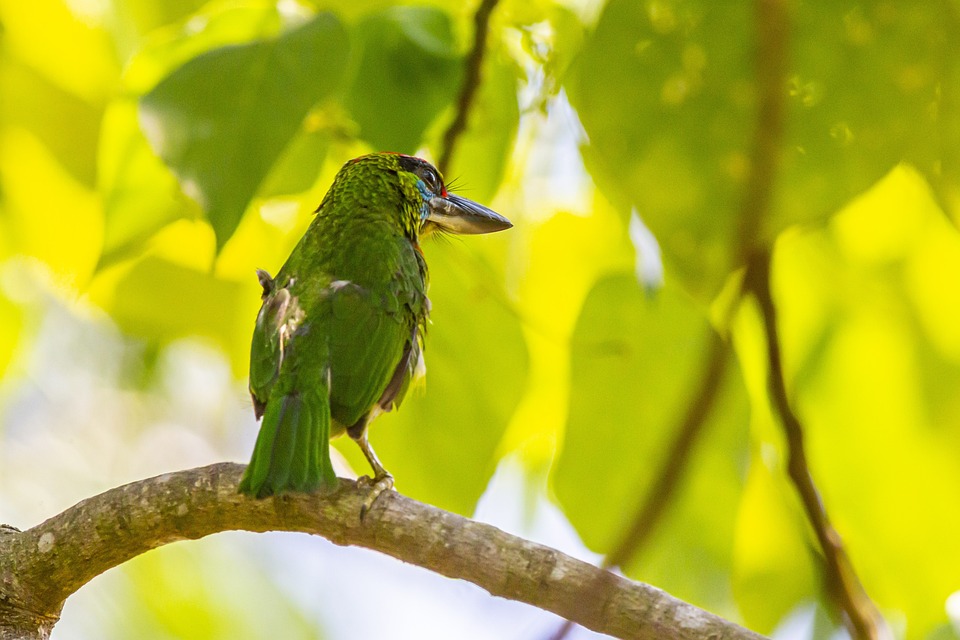Header: How to Discourage Parrots from Becoming Possessive Over Rewards
Introduction: Understanding Possessiveness in Parrots
Parrots are highly intelligent and social creatures that can easily become possessive over their rewards, such as treats or toys. While it’s natural for parrots to develop preferences, possessive behavior can lead to aggression and territoriality. This article aims to provide valuable insights and effective techniques to discourage parrots from becoming possessive over their rewards, ensuring a harmonious and healthy relationship between you and your feathered friend.
Understanding the Root Causes of Possessiveness
Possessiveness in parrots can stem from various factors, including their natural instinct to protect resources, a lack of proper socialization, or even unintentional reinforcement of possessive behavior by their human companions. Identifying the root causes is crucial to address the issue effectively.
Establishing a Positive Reward System
One of the key factors in discouraging possessive behavior is establishing a positive reward system. By creating a structured routine and introducing consistent and fair rules, your parrot will learn to associate rewards with positive behavior rather than possessiveness. Here are some essential steps to follow:
1. Define Clear Rules: Clearly define what behaviors will be rewarded and establish consistent expectations.
2. Use Progressive Rewards: Gradually increase the value of rewards as your parrot displays the desired behavior. This will help prevent possessiveness over a particular reward.
3. Practice Sharing: Encourage sharing by offering rewards to multiple parrots or rotating treats and toys among them. This will teach your parrot that rewards are not exclusive possessions.
4. Reward Alternatives: Introduce a variety of rewards to prevent your parrot from fixating on a single item. This will reduce possessiveness over specific treats or toys.
Promoting Healthy Socialization and Bonding
Proper socialization and bonding play a vital role in discouraging possessiveness in parrots. Here are some effective strategies to foster a healthy relationship:
1. Daily Interaction: Spend quality time with your parrot every day, engaging in activities like training, playing, and providing mental stimulation.
2. Positive Reinforcement: Use positive reinforcement techniques, such as praise, attention, and treats, to reward desirable behaviors. This will strengthen the bond between you and your parrot.
3. Training Sessions: Regular training sessions can help redirect possessive behavior into positive actions. Teach your parrot commands like “drop it” or “leave it” to promote sharing and relinquishing possessions.
4. Socializing with Others: Encourage socialization with other trusted individuals to broaden your parrot’s social circle and reduce possessiveness towards a single person.
FAQs (Frequently Asked Questions)
Q: Is possessive behavior common in all parrot species?
A: While possessive behavior can be observed in various parrot species, individual personalities and experiences also influence their tendencies.
Q: Can possessiveness over rewards lead to aggression?
A: Yes, possessiveness can escalate into aggressive behaviors, such as biting or territoriality. Addressing possessive behavior early on is crucial to prevent aggression.
Q: How long does it take to discourage possessiveness in parrots?
A: The time required to discourage possessive behavior varies depending on individual parrots and their previous experiences. Consistency and patience are key during the training process.
Q: Should I punish my parrot for possessive behavior?
A: Punishment is not recommended as it can worsen possessive tendencies and damage the trust between you and your parrot. Focus on reward-based positive reinforcement instead.
Conclusion: Nurturing a Balanced Relationship
Discouraging possessive behavior in parrots requires consistent training, positive reinforcement, and a nurturing environment. By understanding the root causes of possessiveness and implementing the strategies outlined in this article, you can foster a harmonious bond with your parrot and ensure a happy, well-adjusted companion. Remember, patience and persistence are key to achieving long-lasting positive results.









